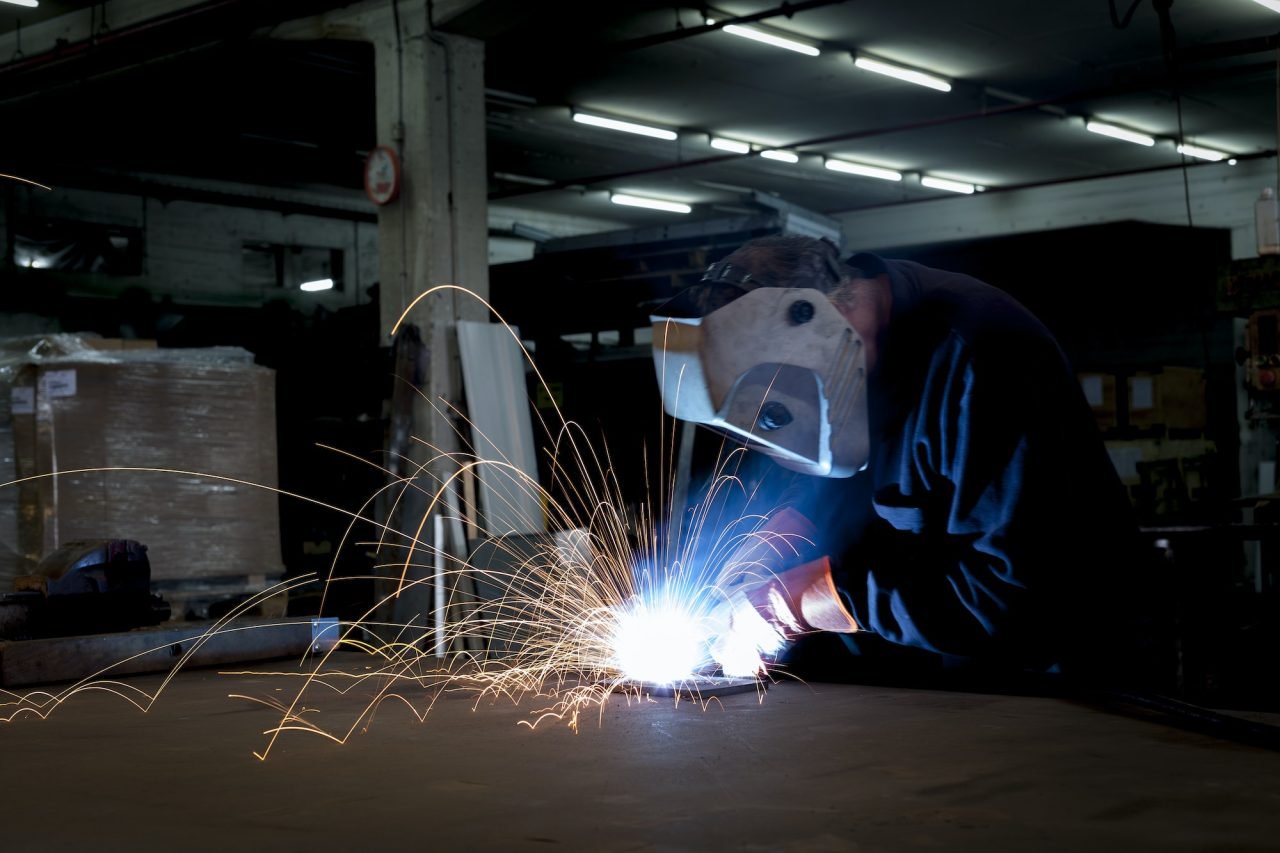About Magellan Circuits
Magellan Circuits, located in Shanghai, China, has been a leader in the PCB manufacturing industry since 2005. Our commitment is to provide high-precision, small to large batch, and fast PCB production services. We cater to high-tech enterprises and research institutions worldwide, delivering professional, reliable, efficient, and high-quality PCBs.
With a state-of-the-art facility covering 27,000 square meters, our team leverages industry-leading experience to quickly provide top-quality high-tech products. Our PCBs are utilized across various sectors including communication, industrial control, computer applications, aerospace, medical, automotive, and testing instruments.

PCB Products

Lorem ipsum dolor sit amet, consectetur adipiscing elit. Ut elit tellus, luctus nec ullamcorper mattis, pulvinar dapibus leo.
- 2500+ Clients
- 5 Years
- 200k USD

Lorem ipsum dolor sit amet, consectetur adipiscing elit. Ut elit tellus, luctus nec ullamcorper mattis, pulvinar dapibus leo.
- 2500+ Clients
- 5 Years
- 200k USD

Lorem ipsum dolor sit amet, consectetur adipiscing elit. Ut elit tellus, luctus nec ullamcorper mattis, pulvinar dapibus leo.
- 2500+ Clients
- 5 Years
- 200k USD

Lorem ipsum dolor sit amet, consectetur adipiscing elit. Ut elit tellus, luctus nec ullamcorper mattis, pulvinar dapibus leo.
- 2500+ Clients
- 5 Years
- 200k USD

Lorem ipsum dolor sit amet, consectetur adipiscing elit. Ut elit tellus, luctus nec ullamcorper mattis, pulvinar dapibus leo.
- 2500+ Clients
- 5 Years
- 200k USD

Lorem ipsum dolor sit amet, consectetur adipiscing elit. Ut elit tellus, luctus nec ullamcorper mattis, pulvinar dapibus leo.
- 2500+ Clients
- 5 Years
- 200k USD

Lorem ipsum dolor sit amet, consectetur adipiscing elit. Ut elit tellus, luctus nec ullamcorper mattis, pulvinar dapibus leo.
- 2500+ Clients
- 5 Years
- 200k USD

Lorem ipsum dolor sit amet, consectetur adipiscing elit. Ut elit tellus, luctus nec ullamcorper mattis, pulvinar dapibus leo.
- 2500+ Clients
- 5 Years
- 200k USD
PCB Services

Lorem ipsum dolor sit amet, consectetur adipiscing elit. Ut elit tellus, luctus nec ullamcorper mattis, pulvinar dapibus leo.
- 2500+ Clients
- 5 Years
- 200k USD

Lorem ipsum dolor sit amet, consectetur adipiscing elit. Ut elit tellus, luctus nec ullamcorper mattis, pulvinar dapibus leo.
- 2500+ Clients
- 5 Years
- 200k USD

Lorem ipsum dolor sit amet, consectetur adipiscing elit. Ut elit tellus, luctus nec ullamcorper mattis, pulvinar dapibus leo.
- 2500+ Clients
- 5 Years
- 200k USD

Lorem ipsum dolor sit amet, consectetur adipiscing elit. Ut elit tellus, luctus nec ullamcorper mattis, pulvinar dapibus leo.
- 2500+ Clients
- 5 Years
- 200k USD
Why Partner with Magellan Circuits?
Advanced Technology
Leverage our cutting-edge PCB manufacturing technologies, including microvias and controlled impedance routing, to ensure your products are reliable and high-performing.
Quality Assurance
Rest assured with our stringent quality control processes, backed by ISO 9001, UL, ISO 14001, ISO/TS 16949:2009, and OHSAS 18001 certifications, ensuring top-notch quality for your PCBs.
Global Connections
Benefit from our strategic location in Shanghai and our strong partnerships with Fortune 500 companies, allowing us to effectively meet diverse and complex client requirements.
Custom Solutions
Receive tailored PCB solutions designed to meet your specific needs, whether for different development cycles, with rapid turnaround times to keep your projects on track.
Sustainable Practices
Support environmentally responsible manufacturing with our commitment to sustainable practices and strict adherence to ISO 14001 environmental standards.
Competitive Pricing
Achieve superior value with our competitive pricing, enabled by efficient production processes and strategic sourcing without compromising on quality.
Customer Support
Experience comprehensive support from our dedicated customer service team, ensuring your PCBs perform optimally in their applications and addressing any concerns promptly.
Innovation and R&D
Stay ahead of the curve with our focus on innovation and research and development. Our team is dedicated to continuously improving our technologies and processes to deliver cutting-edge PCB solutions.
Scalability
Grow your business with our scalable manufacturing capabilities. Whether you need a small batch or a large production run, we have the capacity to meet your demands without compromising on quality.
Let's Talk About Your Needs
Contact us today for a quote and experience our commitment to quality and efficiency firsthand.
PCB Manufacturing Process Overview
PCB (Printed Circuit Board) manufacturing is a multi-step process that requires precision and expertise to ensure the final product’s reliability and performance. Here is a detailed overview of the entire PCB manufacturing process.
Step 1: Design and Layout
The journey of a PCB begins with the design phase. Layout Engineers use specialized software (e.g., Altium Designer, Mentor Xpedition, Cadence Allegro) to create a detailed layout of the circuit board. This layout includes the placement of components, routing of electrical connections, and mechanical details. The design is crucial as it forms the blueprint for all subsequent steps. Accurate design ensures that the PCB will function correctly and meet performance standards. Errors at this stage can lead to significant issues later in the process.


Step 2: Photolithography
Once the design is finalized, the next step is photolithography, a process used to transfer the circuit pattern onto a copper-clad laminate. A photographic film or plot of the design acts as a mask. This mask is placed over the laminate, and UV light is used to harden the photoresist in the exposed areas. The unexposed photoresist is then washed away, leaving the circuit pattern on the laminate.
Step 3: Etching
Etching is the process of removing unwanted copper from the board to leave behind the circuit traces. The board is immersed in a chemical solution that dissolves the exposed copper, while the areas protected by the hardened photoresist remain intact. This step is critical for defining the electrical pathways on the PCB.


Step 4: Drilling
Drilling involves creating holes in the PCB for component leads and vias. These holes are drilled with precision using automated machines. The accuracy of drilling is essential for ensuring proper alignment and connectivity of components on the PCB.
Step 5: Plating
In the plating process, a thin layer of copper is deposited on the drilled holes and the surface of the PCB. This step ensures that the holes are conductive, allowing electrical connections between different layers of the PCB. Plating also enhances the durability and reliability of the board.


Step 6: Solder Mask Application
A solder mask is applied to the PCB to insulate the copper traces and prevent short circuits. This protective layer also shields the board from environmental damage. The solder mask, typically green, helps in ensuring the longevity of the PCB.
Step 7: Silk Screening(Optional)
Silk screening involves printing component labels, logos, and other markings on the PCB. These markings are essential for component placement and assembly. Silk screening is usually done using a screen-printing process that applies ink to the board’s surface.Due to product confidentiality considerations, some companies choose not to release Silkscreen on PCB.


Step 8: Assembly
During the assembly phase, components are placed onto the PCB and soldered in place. This can be done using Surface-Mount Technology (SMT) and/or Through-Hole Technology, depending on the design. Accurate assembly is crucial for ensuring the functionality and reliability of the final product.
Step 9: Testing
The final step in PCB manufacturing is testing. This involves verifying that the PCB functions correctly and meets the specified requirements. Various testing methods are used, including In-Line Inspections, Automated Optical Inspection (AOI), In-Circuit Testing (ICT), and Functional Circuit Testing(FCT)(Start from preproduction phase). These tests detect any defects or issues that could affect the board’s performance.

Advanced Technologies: Microvias, Controlled Impedance, and More
The PCB industry continuously evolves, integrating advanced technologies to meet the demands of high-performance applications. These technologies enhance the capabilities, reliability, and efficiency of PCBs, making them suitable for various sophisticated uses. Here are some of the critical advanced technologies adopted in the industry:
Microvias:
Microvias are tiny vias used in HDI (High-Density Interconnect) PCBs. They enable high-density interconnections, allowing for more complex and compact designs. Microvias improve signal integrity by reducing the distance signals travel, thus minimizing latency and enhancing overall performance.
Controlled Impedance Routing:
Maintaining consistent impedance is crucial for high-speed and high-frequency circuits. Controlled impedance routing ensures that the PCB traces have the correct impedance, which is vital for preventing signal degradation and ensuring reliable data transmission. This technology is essential for applications in telecommunications, aerospace, and high-speed computing.
High-Frequency Laminates:
High-frequency laminates are materials designed to minimize signal loss at high frequencies. They provide low dielectric constant and low dissipation factor, making them ideal for RF (Radio Frequency) and microwave applications. These laminates ensure efficient signal propagation, which is critical for high-speed electronic circuits.
Automated Optical Inspection (AOI):
AOI systems are used to inspect PCBs for defects during manufacturing. These automated systems use high-resolution cameras and advanced software to detect anomalies by comparing the captured images to the design specifications. Early detection of defects through AOI ensures high-quality output and reduces the need for rework.
By adopting these advanced technologies, Magellan Circuits ensures that our PCBs are at the forefront of the industry, offering unmatched performance, reliability, and efficiency. Our commitment to integrating these technologies into our manufacturing processes allows us to meet the evolving needs of our clients across various high-tech industries.
Sustainable Manufacturing
In the PCB manufacturing industry, adopting sustainable practices is essential for minimizing environmental impact and promoting eco-friendly operations. Here are some key sustainable practices used in the industry:
Waste Reduction:
Manufacturers focus on reducing waste throughout the production process. This involves optimizing material usage, improving process efficiency, and implementing strict waste management protocols.
Recycling:
Recycling is critical in sustainable manufacturing. Companies recycle a variety of materials, including copper, plastic, and leftover PCB laminate, to minimize waste and reduce the need for new raw materials.
Energy Efficiency:
Energy-efficient equipment and processes help reduce energy consumption. Manufacturers invest in technologies such as energy-efficient lighting, HVAC systems, and machinery to lower their energy use and carbon footprint.
Water Conservation:
Implementing water-saving techniques in the manufacturing process helps reduce water usage. Efficient water management practices include recycling water in cooling systems and using water-efficient cleaning processes.
What we do at Magellan Circuits:
We use advanced software to accurately calculate material requirements and employ efficient cutting techniques to minimize waste. This ensures effective material usage, reducing excess and off-cuts. Our production processes are streamlined with lean manufacturing principles and advanced automation to enhance efficiency. We have strict waste management protocols in place to segregate and handle waste responsibly. Additionally, our staff receive regular training to ensure proper disposal and recycling of materials, minimizing our environmental impact.


